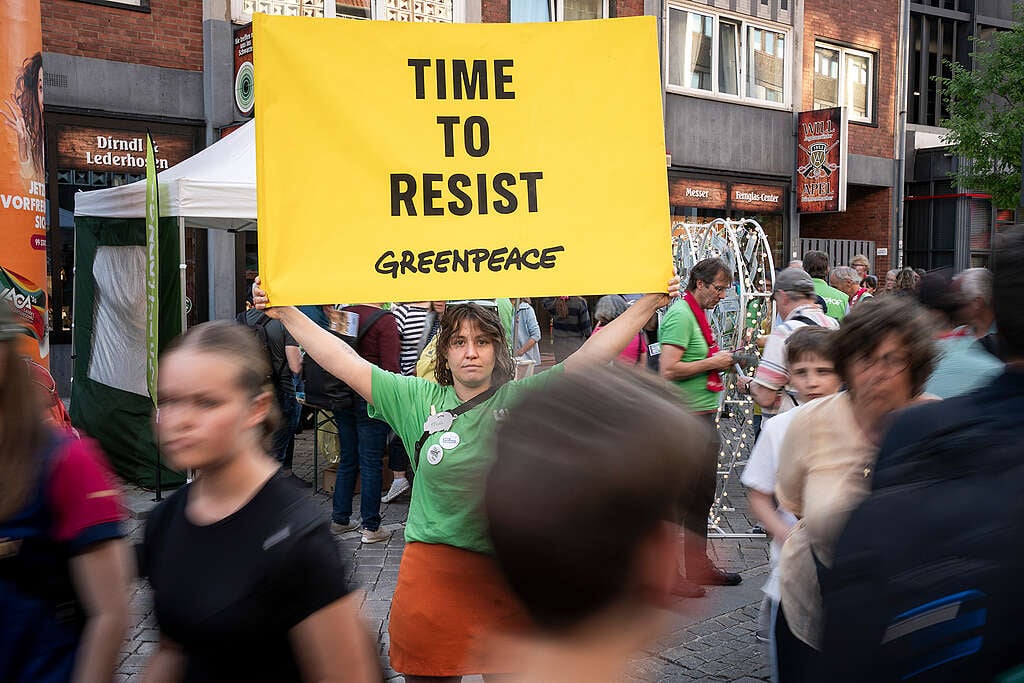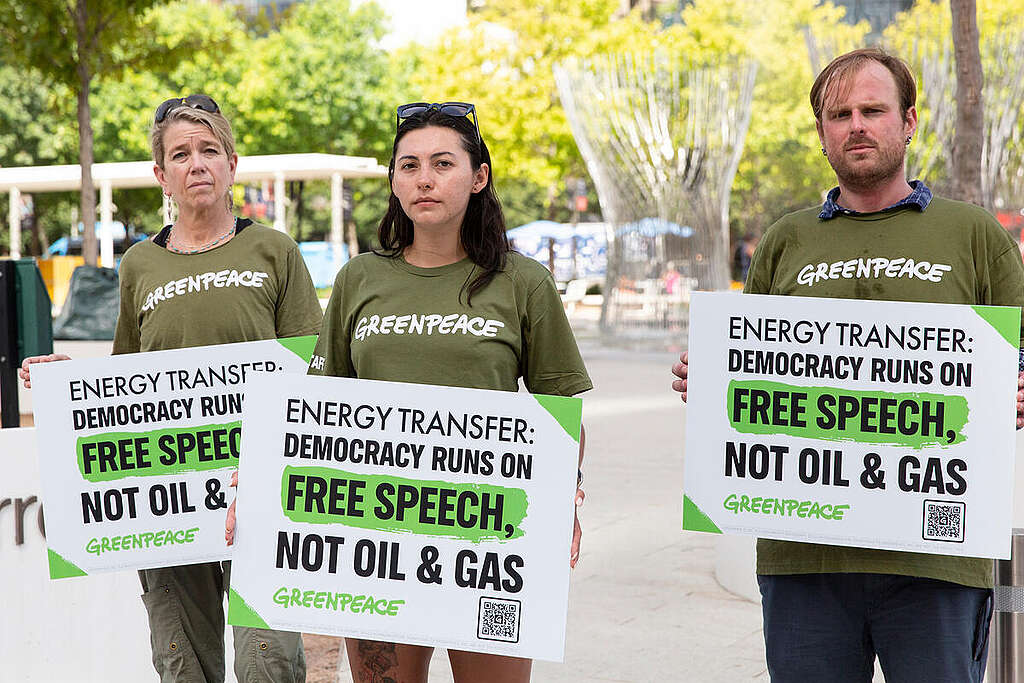Russia's invasion of Ukraine sent shockwaves around the world. It has brought death, devastation and displacement to millions, triggered one of the largest refugee crises of the 21st century, and upended energy, trade, finance and food systems worldwide. Over three years since Russia's full-scale assault in February 2022 – itself eight years after the illegal annexation of Crimea in 2014 – the consequences continue to reverberate. The weaponisation of Ukraine's nuclear power plants, including Europe's largest, provide a chilling reminder of the Soviet era Chornobyl disaster that sent a cloud of radiation – and existential terror – as far away as North Africa and Canada.
A new report – the most far-reaching analysis of environment and environmentalism in Russia since 2022 – shows how Putin's regime relies on a toxic troika of extractivism, authoritarianism and war. Its veil of disinformation, propaganda and control of information is now so thick that free reporting on Russia now depends on information gathered from outside its borders: the world's largest country has become a void of reliable information. Fossil fuels finance war. War justifies repression. Authoritarianism shields elites from scrutiny while blocking demands for justice.
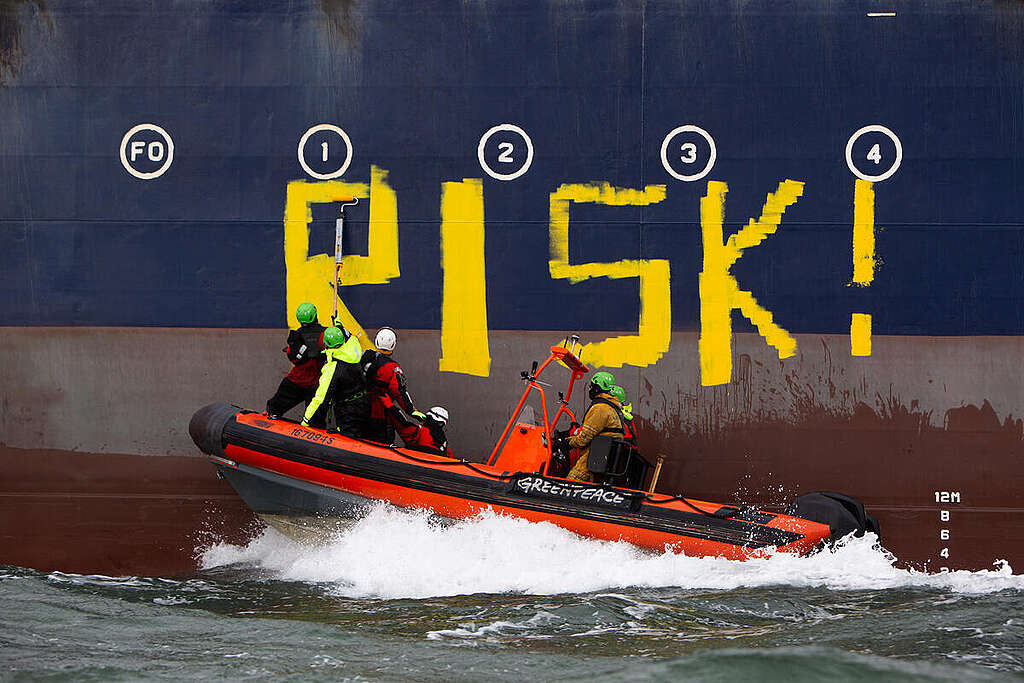
This cycle devastates nature, dismantles institutions, suppresses society, and poses a systemic threat to global security and environmental stability. Russia is not an isolated case. It is a warning for the world of what happens when resource plunder, repression and militarism become the foundations of power.
From the Arctic to Africa: a global threat with global consequences
Natural systems in such a large country have an enormous influence on global environmental and climate stability. Nearly half of Russia is forest, which, alongside vast tundra, wetlands and permafrost, stores immense carbon reserves and safeguards biodiversity (see chapter 4: Biodiversity Crisis). Forest loss could accelerate the climate crisis and trigger irreversible ecological damage but under Kremlin policy, these ecosystems risk losing resilience fast: over half of Russia's forest is deemed exploitable; fires spread unchecked; permafrost thaws, and fragile habitats fragment.
Meanwhile, the risks of environmental and technological disasters continue to grow. Corruption, ageing infrastructure and dismantled oversight systems make spills, leaks and industrial accidents more likely (see chapter 1: Socioeconomic Context). One doesn't have to look far for an example: in December 2024, a disaster in the Black Sea made headlines worldwide when several thousand tons of heavy fuel oil spilled into the water after two tankers wrecked in a storm in the Kerch Strait. It was thousands of volunteers who rushed to clean the coastline and save wildlife, while the authorities once again failed to deliver an adequate response to a disaster rooted in their fossil fuel-dependent system.
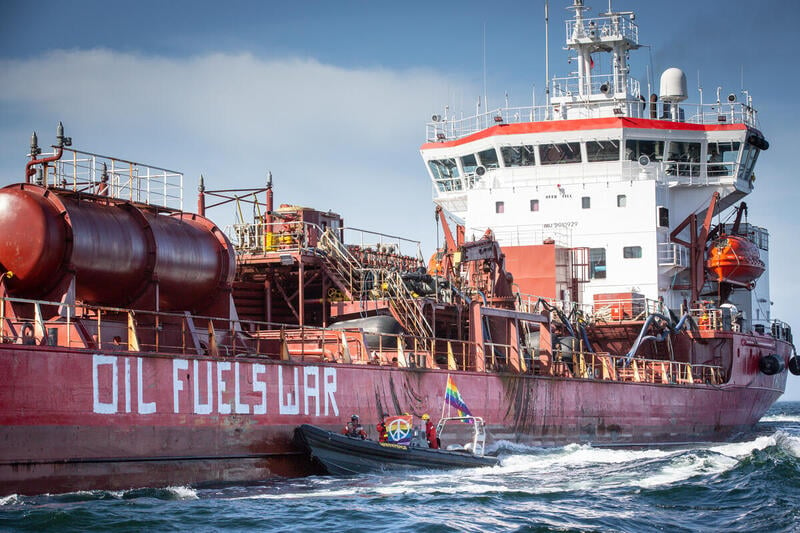
The Russian Arctic is now a militarised and ecologically vulnerable zone. Warming four times faster than the global average, it is under pressure from oil and gas drilling, military expansion, and the breakdown of international cooperation. Indigenous Peoples are being displaced from their land, their rights ignored and livelihoods destroyed.
Beyond its borders, Russia exports its extractivist model. Through fossil fuel projects in Uganda, Egypt, Mozambique and beyond - and nuclear deals pushed by state nuclear corporation Rosatom, which is implicated in war crimes allegations at Ukraine's Zaporizhzhia nuclear power plant - Russia locks countries into dependency while enriching elites. International actors remain complicit: many states and corporations continue to buy Russian oil, gas and raw materials, sustaining war, repression and destruction.
At global forums like G20 and BRICS+, Russia systematically obstructs and sabotages international cooperation, hiding behind "resource sovereignty" to weaken binding climate and biodiversity agreements. Many of its "green" organisations are state-controlled, while genuine environmental governance has collapsed into imitation initiatives and propaganda.
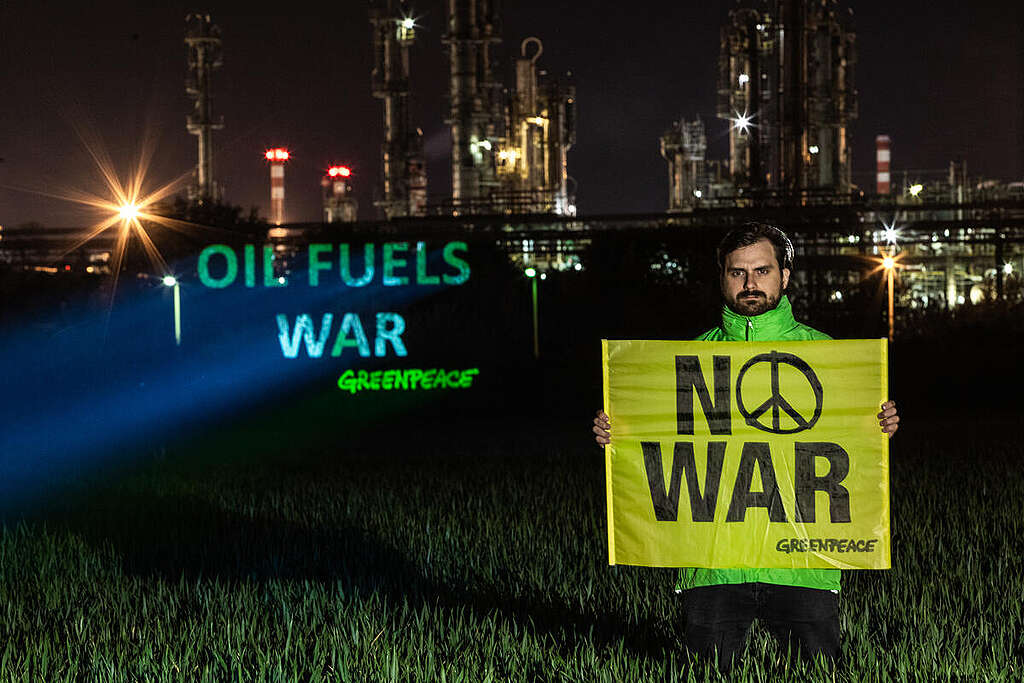
A warning to the world – but resistance persists…
The lesson for the world is stark: when countries promote reckless extractivism or elites profiteering from destruction, or let fossil fuels dominate their economies, they risk sliding into the same dangerous cycle. The erosion of democracy, the fog of propaganda, and the silencing of dissent go hand in hand with environmental collapse and vicious war-mongering.
The Kremlin has cracked down on civil society, dismantling independent organisations and shrinking access to environmental information. Public oversight is almost impossible – but groundbreaking analysis like this proves reporting can cut through the silence. Moreover, it shows that environmental issues remain one of the few areas where ordinary Russians still find solidarity and courage. Local protests, grassroots campaigns and transnational cooperation continue, even in the face of state intimidation.
Greenpeace Russia was forcibly closed after 30 years of defending forests, rivers and communities. But repression has not silenced the movement.
Twelve years ago, the Arctic 30 were arrested at gunpoint for peacefully protesting Arctic oil drilling. Their detention sparked a global outcry, and they were freed after three months. Russia was ordered to pay damages. It was one of the milestones in Russia's descent into authoritarianism, but also a reminder of the power of solidarity.
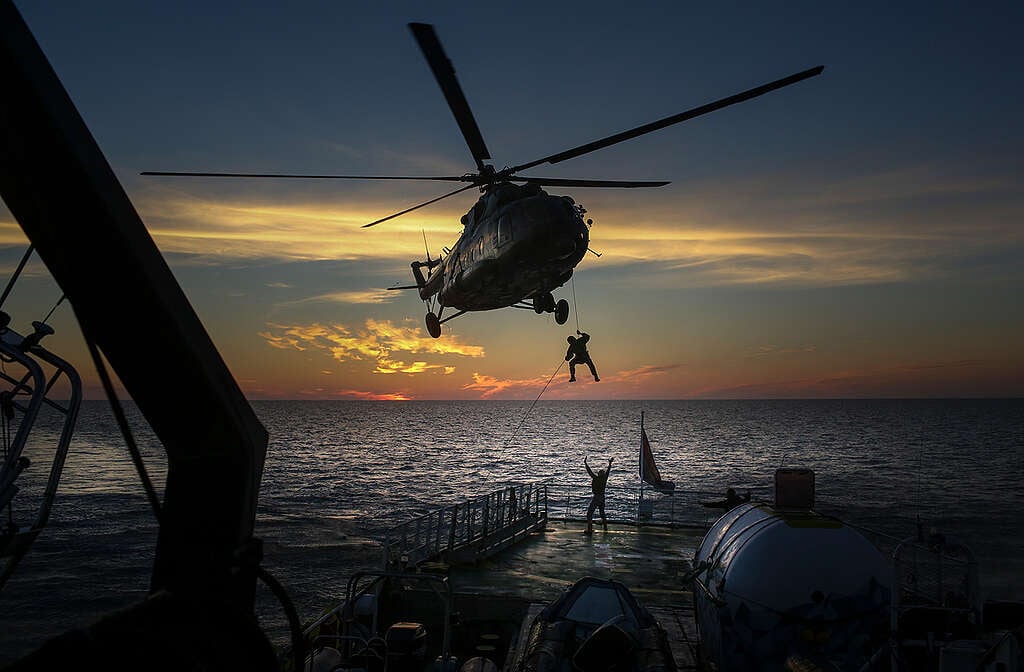
Greenpeace has stood against Russian state aggression and with communities in Ukraine since the very beginning of the full-scale invasion. Greenpeace Ukraine opened in Kyiv in September 2024, exposing the environmental damage and crimes of the invasion and supporting the green reconstruction of the country with local partners under bombardment from the Russian military. In the year since, Greenpeace Ukraine has solarised eight hospitals, trained dozens of women technicians and exposed Russian nuclear threats, demonstrating hope, courage and creativity even in the darkest times.
…and solidarity grows
Today, grassroots resistance in Russia still connects with international allies, keeping alive the hope of a sustainable alternative. Russia holds enormous potential for a different path: vast renewable resources, rich biodiversity, scientific expertise and strong public concern for the environment. But unlocking that potential requires fundamental change: an end to aggression, restoration of civil society, and a shift away from extractivism towards sustainability. Even as Putin's assault on civic space in Russia continues, and its war in Ukraine rages on, the environment remains one of the few subjects still sparking protest – which could be key to igniting broader shifts in Russian society.
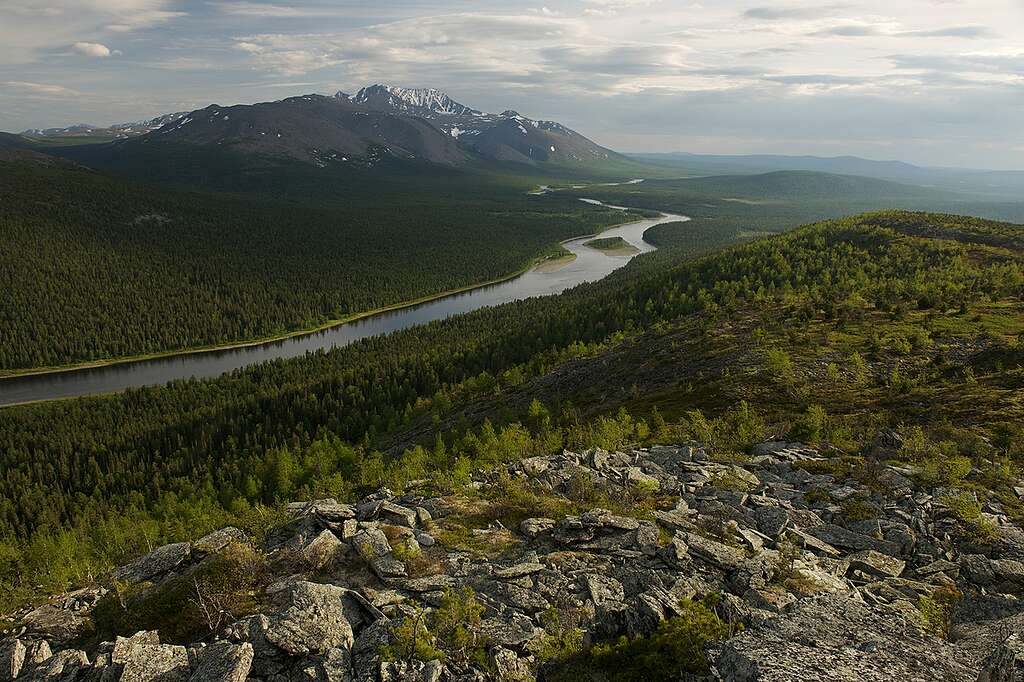
Russia may be a warning for other countries whose government agenda depends on fossil fuel extraction, authoritarian rule and militarism – but it is also a powerful reminder: repression breeds resistance. Across borders and movements, solidarity is growing.
Despite being banned in Russia, Greenpeace continues to work on Russia and related issues. Governments and powerful elites have tried to silence us before, by bombing our ship, suing Greenpeace entities, shutting down offices and attempting to erase our existence. Yet our movement is global. It is unstoppable. Solidarity fuels hope. Together, we can resist, rebuild and create a fairer, greener and more peaceful future.
Using creativity and conversation, we can challenge the billionaires and companies trying to silence us. Here are a few ideas.
Tell Energy Transfer and other corporate bullies: Stop your attacks on free speech.

